President Hynd on final year: Done a lot, still more to do
Past three years’ progress outlined, emphasis
President George Hynd speaks to the crowd about his accomplishments at the university and his plans for his last year as president.
Oakland President George Hynd struck a positive chord at the first president’s report since it was announced that the Board of Trustees will not renew his three-year contract. Hynd will be leaving Oakland on Aug. 15, 2017.
“It will be an exciting time on campus,” Hynd told a packed Oakland Center Banquet Room on Wednesday, Oct. 5, referring to the upcoming presidential search.
The search will begin this fall and is expected to close in late spring 2017. Board of Trustees Chair Richard DeVore will chair the search committee.
“You all will have an opportunity to voice your thoughts on the move forward with the new president and the objectives you might want he or she to achieve through that process,” Hynd said.
Hynd jumped into a presentation of all the Oakland administration has accomplished during his time in office, including the following:
- A revision of the university’s mission statement and strategic plan
- A $12-million budget increase (fueled by the 2015 8.48 percent tuition increase) to support the strategic plan
- An update to the Campus Master Plan
- Approval of construction on the Southern Student Housing Complex and Oakland Center renovations
- A five-year contract with the American Association of University Professors (the faculty union)
- Community engagement through the OU/Pontiac Initiative and other partnerships
- The hiring of Angie Schmucker, the new vice president of Development and Alumni Relations
Hynd still has 10 months left on his contract.
“As far as I’m concerned, it’s pedal to the metal,” he said.
He said he’ll keep up with business.
“I will continue to work on our community engagement,” Hynd said, adding that he’ll keep thinking about Oakland’s organizational structure, as well.
“We’re not talking about new vice presidents or anything like that,” he said.
Hynd said that although the new president will have different ideas, the fundamental goals of the university will not change.
“It’s going to be hard to argue with strategic objectives like increase our retention rate, increase our graduation rate, hire more faculty and so on and so forth,” Hynd said.
He tried to put the roughly one-percent enrollment drop in perspective by mentioning that registered credit hours have stayed the same.
Hynd also made a comparison between the five-year enrollment changes among public Michigan universities: eight increased (Oakland led the pack), seven decreased, though overall the decrease outweighed the gain.
He said it’s estimated that 52 percent of all OU students indicate that Oakland was their first choice school.
“We’re a changing institution, but I’d like to think in a very positive way,” Hynd said. “In fact . . . in this last year, ‘15-16, we had the highest number of undergraduate degrees ever awarded: 3,199.”
The average ACT score for an incoming freshman rose to 23.6.
The floor was opened up for questions from the public.
“I have absolutely no regrets,” Hynd said of his time at Oakland. “Let’s not get distracted by things that could be classified as drama, and let’s just keep the pedal to the metal.”
A member of the audience asked Hynd what Oakland could do to make the subsequent president stay longer than three years.
“I think it’s going to be up to the Board of Trustees to really frame their conceptualization of what it is they want in a president, so that they can have a president who’s here for five or 10 years,” Hynd said.
The board would only offer a three-year contract when he was hired, Hynd explained after the meeting. This might have been a result of the times.
Former university president Gary Russi resigned in the summer of 2013, the same day his wife and former Oakland women’s basketball head coach Beckie Francis was fired. Betty Youngblood, current senior adviser to the provost for Macomb strategic initiatives, served as interim president until Hynd was hired in July 2014.
“I will not be actively involved in the search process,” Hynd said.
But he has some advice for the next president:
“Take advantage of the incredibly strong foundation and accomplishments we’ve had over the last three years,” Hynd said. “The university will be incredibly well-positioned. They’re not going to inherit a university that has financial problems, or alumni problems, or student problems, or crime on campus.”
The general sentiment was “don’t waste it.” Run with it.
“Retirement’s a possibility,” Hynd said. “Actually, staying on the faculty here is a possibility because I have a tenured position in psychology, so I could stay here and teach. I could pursue another presidency or another employment opportunity.”
But for now, he’s got a final year to go.
“I think he’s done an outstanding job,” said James Lentini, senior vice president for Academic Affairs and provost. “I think there’s a lot to feel good about.”
Lentini wants to see the next president continue to build a fundraising mechanism, one of Hynd’s priorities.
“The next president will certainly have to be externally facing,” Lentini said. Though the main focus will be the students, he added.
“It’s very important to have somebody who comes from academia,” Lentini said.
Chief Operating Officer Scott Kunselman wants the next president to be empowering and to accept input from his or her subordinates.
After Hynd spoke, Graeme Harper, dean of the Honors College, gave a presentation on its state of affairs.
“No other honors college has grown at the level that we’ve grown at over the last four years,” Harper said. Only the University of Michigan is competing.
Harper said 414 freshman entered the Honors College this academic year, about 14 percent of the total freshman class. Thirty-eight percent are presidential scholars, which requires a high school GPA of at least 3.9 and a 31 ACT score.
“These are not students that other people don’t want,” Harper said.
The requirements for entry to the Honors College were raised about two years ago to a minimum 3.7 GPA and 27 ACT score. Ironically, enrollment grew.



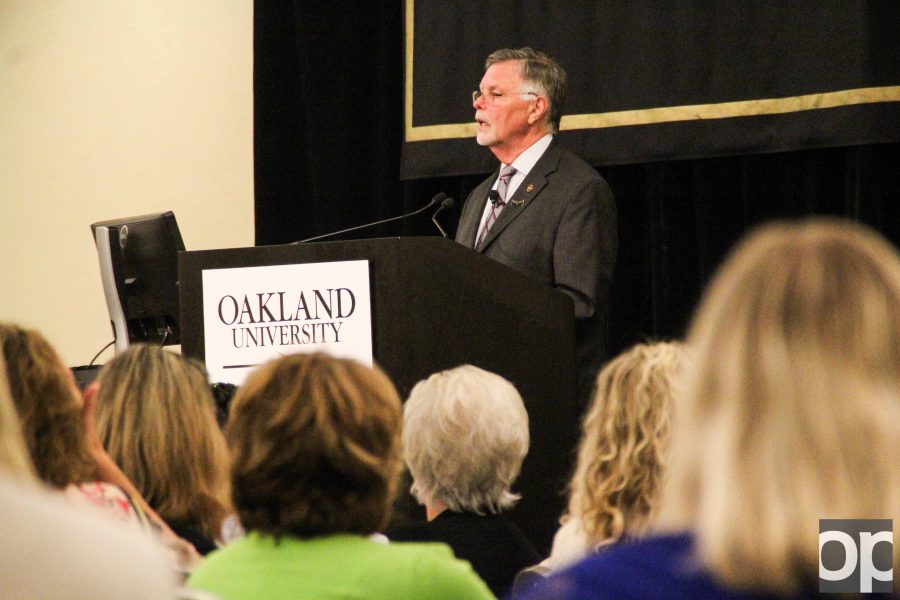
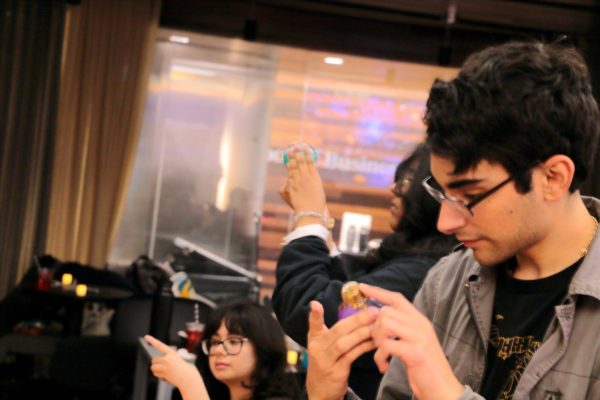
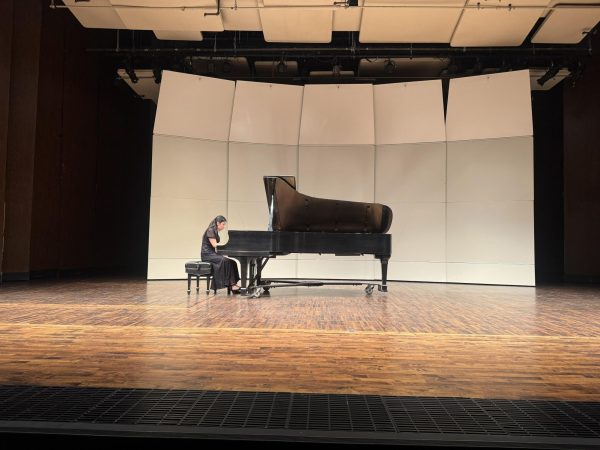
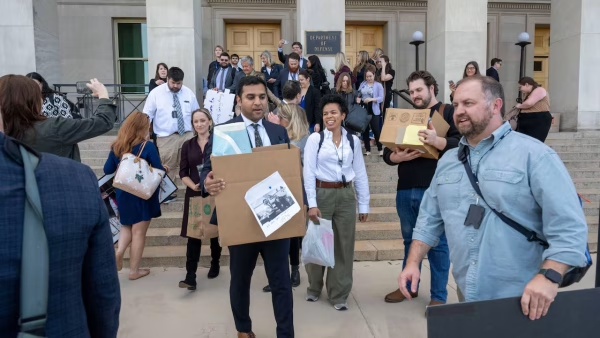
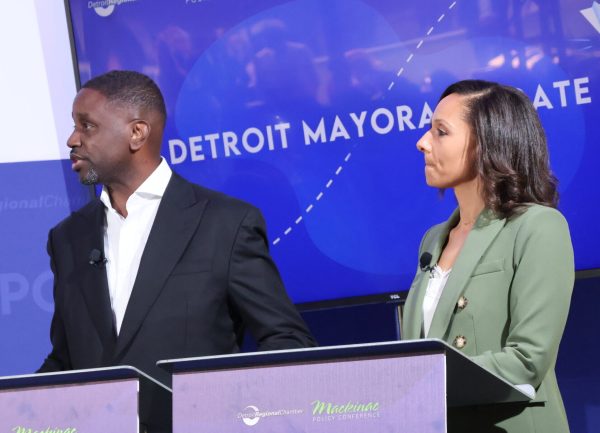
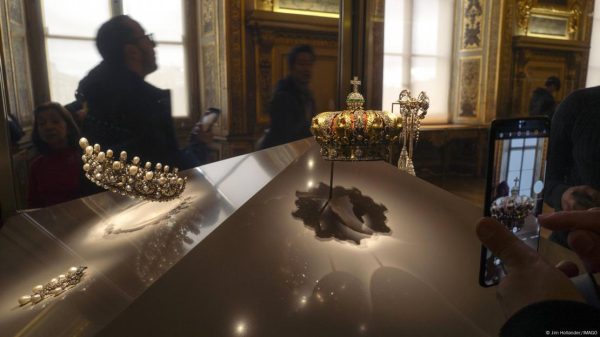
Zack Thomas • Oct 8, 2016 at 7:19 PM
A question we should be asking is: “why is unsustainable growth an accomplishment?”